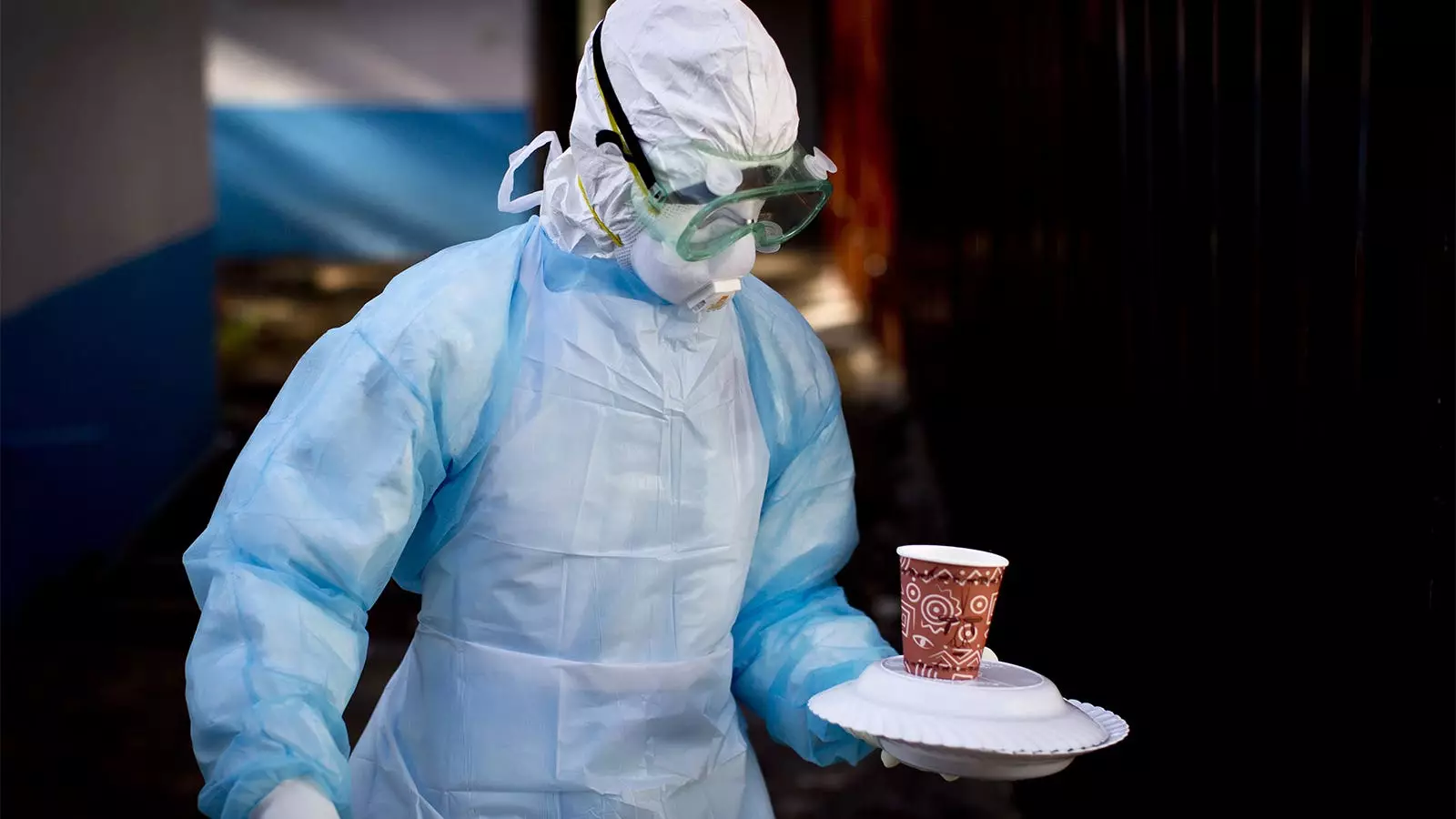The recent declaration of a Marburg virus outbreak in Rwanda has intensified fears and heightened vigilance across the nation. With eight confirmed fatalities and 26 cases outlined by the Health Minister, Sabin Nsanzimana, it is clear that Rwanda is grappling with a health crisis that, without immediate response, could escalate into a larger catastrophe. While Marburg and Ebola share certain characteristics, particularly their modes of transmission and severity, the absence of a vaccine or any approved treatment for Marburg complicates the situation significantly, putting tremendous pressure on health systems that are already stretched thin.
The Marburg virus, which is primarily transmitted from fruit bats to humans, spreads through close physical contact with infected individuals or contaminated surfaces. This fast-spreading nature, combined with its high fatality rate—reaching up to 88%—could create a perfect storm in a densely populated area without robust healthcare interventions.
In light of the ongoing outbreak, the Rwandan government is executing an urgent response plan to curb both the spread of the disease and the associated panic. Contact tracing is being intensified, with public health officials identifying approximately 300 individuals who have been in close proximity to confirmed cases; many of these individuals are reportedly healthcare workers. The country’s Health Minister emphasized the importance of isolating these contacts and reinforcing guidelines surrounding physical interactions.
Moreover, public awareness campaigns are crucial at this juncture. The population has been advised to avoid close contact with anyone displaying relevant symptoms—namely fever, muscle pains, or gastrointestinal distress. Citizens are urged to maintain hygiene standards, especially concerning bed linens or other items that could be contaminated. The adoption of these measures is vital not only for controlling the outbreak but also for instilling confidence within the community that authorities are taking the situation seriously.
Reinforcing Rwanda’s efforts, international organizations are stepping in to offer assistance and expertise. The Centers for Disease Control and Prevention (CDC), for instance, has highlighted its long-standing partnership with Rwanda and its commitment to providing essential support for the outbreak investigation and response. They aim to employ insights gained from previous outbreaks to enhance preventive measures and bolster contact tracing capabilities.
Similarly, the World Health Organization (WHO) has vowed to scale up resources and mobilize expertise to assist local authorities. Such global partnerships remind us that epidemics cross borders and underscore the need for collaborative efforts in public health crisis response. The urgency of international support is amplified by historical precedents where rapid global responses have shaped the trajectory of disease outbreaks.
Marburg’s emergence was first noted in 1967, and since then, outbreaks have sporadically surfaced across various African nations, including Angola and Uganda. This historical backdrop paints a picture of the continual threat posed by zoonotic diseases, especially in regions where ecosystems and human habitation overlap.
Additionally, the concurrent presence of other infectious diseases, like mpox—formerly known as monkeypox—highlights the degree to which public health systems are monitored and managed. Rwanda reports six cases of mpox, underscoring the need for targeted vaccine distribution and emergency preparedness measures. The WHO has categorized mpox as a global health emergency, stressing the interlinked nature of health threats that countries must collectively navigate.
As Rwanda battles the Marburg outbreak, it is imperative not only for the nation but for the global community to remain vigilant. The rapid mutation of viruses in unpredictable ways calls for an integrated approach to public health that enhances surveillance, preparedness, and swift response. Investing in health infrastructure, broadening vaccination campaigns, and fostering international cooperation will be essential to preventing future outbreaks.
While the Marburg outbreak poses significant challenges, it is also a critical opportunity to reevaluate and reinforce our collective health response systems. Rwanda stands at a crossroads, and how it navigates this public health crisis will serve as a bellwether for similar struggles elsewhere—a reminder that we are all part of a shared global health ecosystem, and each country’s health is intrinsically linked to the safety of others.


Leave a Reply